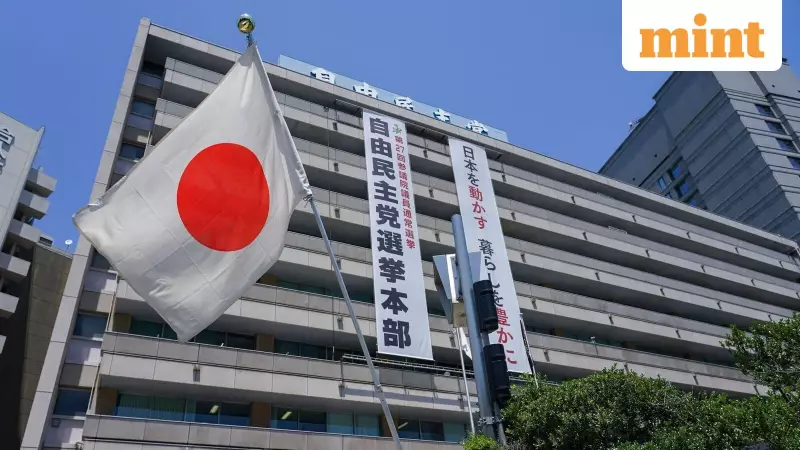
Japan's economy experienced a significant setback during the July-September quarter, contracting for the first time in six quarters as escalating trade tensions and US tariffs took a heavy toll on exports.
Economic Contraction Details
Official data released on Monday revealed that Japan's economy shrank at an annualised rate of 1.8% during the three-month period ending September. On a quarterly basis, the gross domestic product declined by 0.4%, marking the first contraction since early 2018.
The Cabinet Office informed Associated Press that while this represents a concerning downturn, the actual decline was less severe than market expectations of a 0.6% drop. The annualised figure indicates what would happen to the economy if the current contraction rate persisted for an entire year.
Export Slump Drives Downturn
The primary driver behind Japan's economic contraction was a sharp decline in exports of goods and services, which fell by 1.2% compared to the previous quarter. This represents a dramatic reversal from the second quarter when exports had grown by 2.3%.
According to CNBC reports, net exports alone contributed to a 0.2 percentage point reduction in GDP growth. The export sector suffered particularly due to President Donald Trump's tariff policies, with Japanese shipments declining for four consecutive months starting May, before showing a slight recovery in September.
On an annualised basis, exports plummeted by 4.5% during the July-September period, while imports saw a marginal decline of 0.1%.
Domestic Consumption Provides Buffer
Despite the export-led downturn, domestic consumption emerged as a stabilizing factor for the Japanese economy. Both government and private consumption showed positive growth during the quarter, rising by 0.5% and 0.1% respectively compared to the previous three months.
Public demand grew by 0.5% quarter-over-quarter and contributed 0.1 percentage point to the overall economy, helping to cushion the impact of the export collapse.
Trade Deal and Political Changes
Japan's export-dependent economy, heavily reliant on automotive giants like Toyota Motor Corp, has been particularly vulnerable to tariff pressures. However, many Japanese manufacturers have strategically shifted production overseas in recent years to mitigate tariff impacts.
In a significant development, Japan finalized a trade agreement with the United States in July, which reduced tariffs on Japanese exports to America from 25% to 15%. These revised tariffs took effect on August 7, 2025.
The economic challenges coincided with political transitions in Japan, with Sanae Takaichi assuming the prime minister's office in October, bringing new leadership during this period of economic uncertainty.






